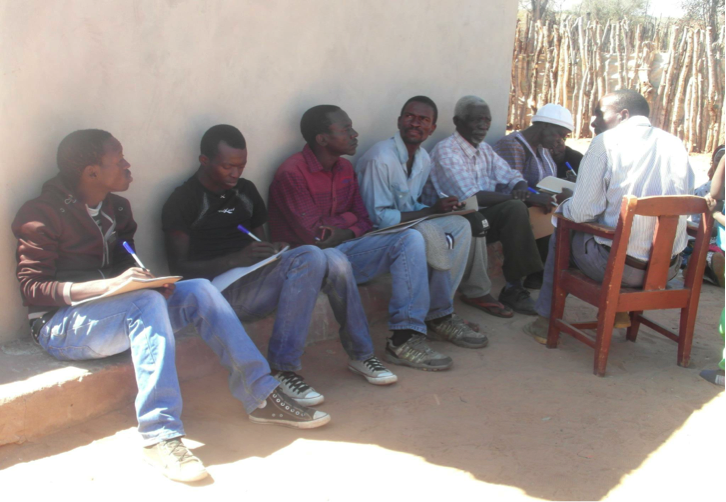Since 2013, the Church and Civil Society Forum (CCSF) members have conducted several dialogues across Zimbabwe, in the following areas Mberengwa, Sadza, Muzarabani, Birchnough Bridge, Nyanga, Plumtree, Shamva, Guruve, Binga and Chivi. In Matabeleland three of the sustained dialogues are being convened by Bulawayo Agenda, since 2013 when the initial Baseline survey to map the local conflict resolution mechanisms was conducted in Matopo, Plumtree and Lupane. Using the sustained dialogue approach, in the three districts, the communities identified three conflict areas most prevalent in their communities. In Plumtree and Matobo access to grazing land emerged as the key conflict issue while in Lupane language was the key issue as characterized by the inability of staff in Government departments failing to converse in the local Ndebele language. Using the problem tree analysis framework, community leaders identified the causes and symptoms of the conflict issues identified.
Working with traditional and church leaders with almost half of these being women and youths in the respective districts, the dialogues have provided a regular platform where key developmental gaps are interrogated and solutions proffered. An average of 80% of the participants in the dialogues has consistently attended the dialogue sessions since inception, a positive sign of commitment by local leadership.
In Lupane, the local community in Menyezwa lament the gradual erosion of the Ndebele language in formal learning institutions (Primary and Secondary schools) as epitomized by the teaching of the language by non Ndebele speakers teachers The new Constitution of Zimbabwe Under Chapter 1 Scetion 6 provides for equitable development and promotion of indigenous languages. Local leaders are asking for the deployment of teachers proficient in the Ndebele language by the Civil Service Commission. Furthermore, the community is calling for the establishment of a teacher training college.

Brainstorming sessions are done in groups to ensure full participation. Lupane Dialogue 4 August 2015
Access to grazing land emerged as the key conflict issues in Matobo and Plumtree (Bulilima and Mangwe). Cattle are a principal economic asset in arid region five. Shortage of grazing land has thus reduced the potential number of cattle that the community can rear, with the largest number of cattle a single family can rear being pegged at 20 heads. In Mangwe, the shortage of water for both humans and animals has worsened the situation. Conflict often emerges in the community as they scramble for the limited grazing land and other natural resources.

Documentation of group session in Plumtree Focus Group Discussion on the 28th of May 2015.
The dialogues have provided a platform for church, traditional leaders and ordinary community members to analyze the identified conflict issues, identify key stakeholders for conflict resolution and craft time bound advocacy strategies. The dialogues in the three areas have evolved at varying levels. During the last round of the dialogue process, a Conflict Prevention Management Resolution and Transformation (CPMRT) training was conducted in Plumtree while consolidation and review of advocacy plans and stakeholder mapping was conducted in Matobo and Lupane.
Due to the progressive nature of the dialogues, it has been easy to monitor the process and provide technical support to the local leadership as they implement the advocacy strategies. Of particular note is that the dialogues are using locally established conflict resolution mechanisms and are thus locally owned and sustainable. In order to motivate participants, advocacy actions have been classified into immediate, short term and long term actions. Accomplishment of immediate action plans is meant to drive the desire to gradually work towards medium and long term action plans.The sustainable dialogue process is progressive and is set to positively transform conflict in local rural communities.

